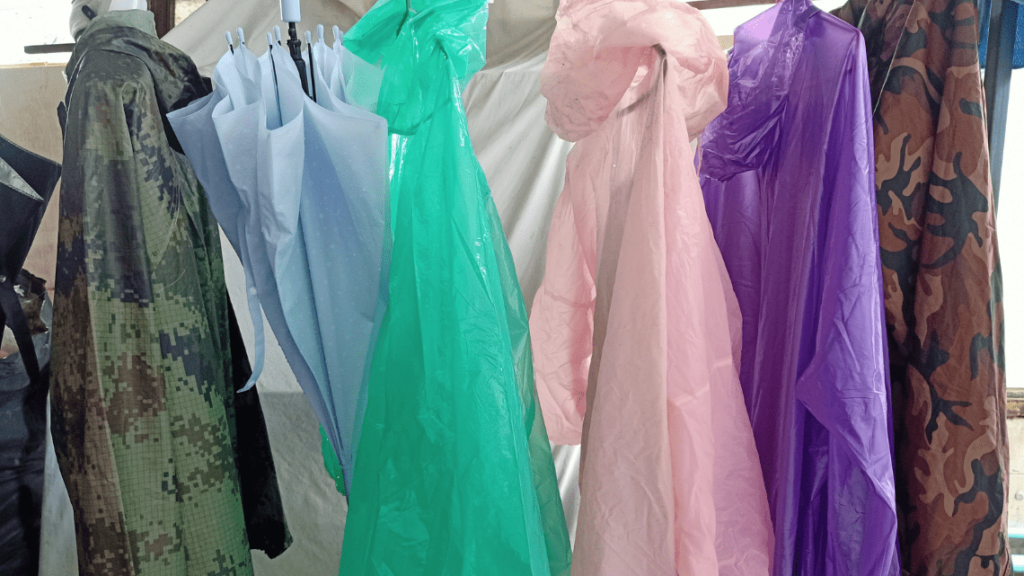Table of Contents
The properties of polyvinyl chloride (PVC) in comparison with other plastics
Polyvinyl chloride, also known as PVC, is a versatile thermoplastic that plays a significant role in many industrial and commercial sectors.
The variable crystallinity of PVC, induced by the semi-crystalline structure of the polymer, allows it to present itself in both a solid, resilient form and an elastic, flexible texture.
This adaptability results from the ability to modify the physical properties of the material through various compositions and processing methods.
FEATURES | PVC | POLYETHYLENE (PE) | POLYSTYRENE (PS) | POLYPROPYLENE (PP) |
|---|---|---|---|---|
| Mechanical strength | Medium to high | Low to medium | Low | Medium to high |
| Chemical resistance | High | Medium | Medium | High |
| Impact resistance | Medium | High | Low | High |
| Heat resistance | Up to approx. 80°C | Up to approx. 115°C | Up to approx. 100°C | Up to approx. 160°C |
| Flexibility | Variable | High | Low | High |
| Crystallinity | Medium to high | Low to medium | Low | Medium |
| Areas of application | Pipes, window frames | Packaging, films | Enclosures, packaging | Car interior, packaging |
The crystallinity of PVC
The adjustable crystallinity of PVC significantly contributes to its versatility, particularly in applications like window frames.
Using a Dynamic Scanning Calorimeter (DSC), the crystallinity of PVC can be precisely determined by measuring the heat absorption or release of the material during controlled temperature changes.
The structural integrity of PVC, driven by an increased crystalline component, provides outstanding mechanical strength and resistance to deformation.
This robust constitution allows window frames to withstand extreme weather conditions and temperature fluctuations without compromising their structural stability. Such high strength and dimensional stability make PVC a preferred material in the construction industry, especially for applications requiring long-term resistance to environmental factors.
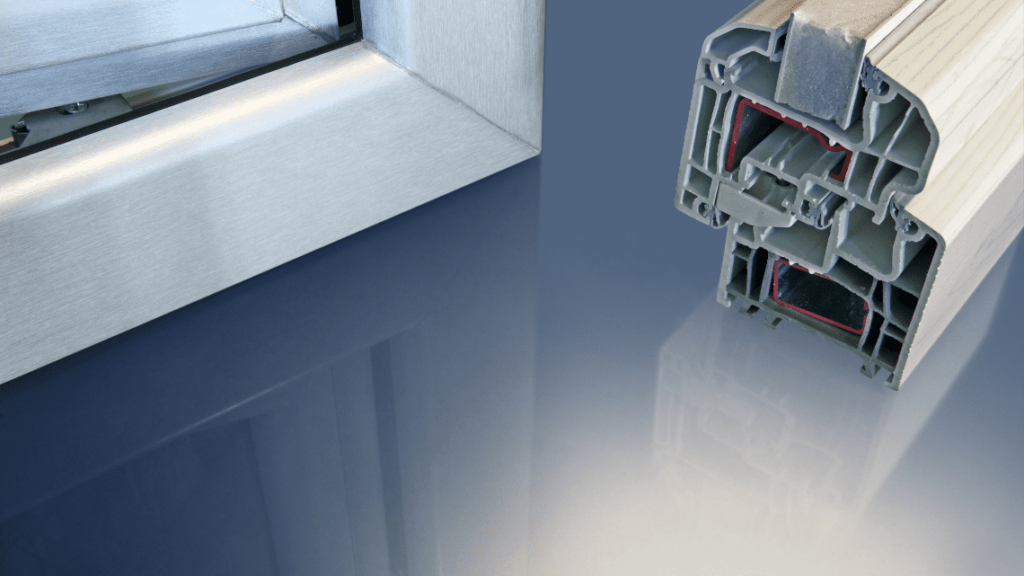
The melting point of polyvinyl chloride
The melting point of PVC ranges between 160°C and 210°C – often specified at around 170°C for vinyl flooring – allowing for effective thermoplastic processing.
This temperature renders PVC pliable and moldable, ideal for creating floorings with precise patterns and textures. Determining the melting temperature of PVC is typically done using a Dynamic Scanning Calorimeter, which analyzes the material’s thermal transitions during controlled heating.
Processing in specialized machines allows the hot PVC to be pressed or extruded into molds to achieve the final shape. Upon cooling, the material solidifies, taking on the exact contour of the tool and forming a durable, resilient surface.
This process leverages the thermoplastic properties of PVC, which enable the material to be reshaped under heat and regain its solid structure upon cooling. The result is long-lasting flooring that is not only versatile in design but also robust and durable in application.
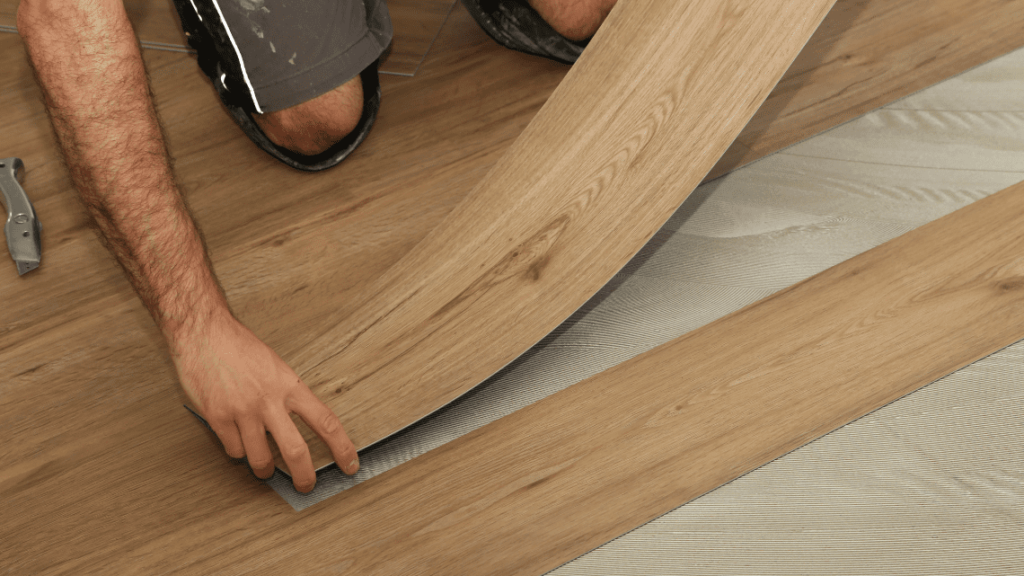
Pipe systems, window frames and hoses made of PVC
PVC is not only characterised by its versatility, but also by its durability. Its adaptability makes it possible to manufacture various products, from rigid to flexible structures.
Take PVC pipe systems, for example: These are resistant to physical stress and various environmental influences, which is why they are frequently used in the construction industry. Thanks to their robustness and durability, they are a cost-effective solution that still offers high quality.
By fine-tuning processing parameters such as temperature, pressure and cooling rate, the mechanical and visual properties of the final product can be perfected. Window frames made of PVC are particularly popular due to their improved thermal insulation.
The dense structure and excellent insulating properties of PVC help to minimise heat transfer between the inside and outside of a building. This not only leads to a more comfortable room temperature, but also to a reduction in energy consumption and thus to cost savings for heating and cooling.
In industry, flexible PVC hoses are highly valued for their adaptability and durability. These hoses are often used in demanding environments where they need to transport liquids or gases under various pressurised conditions.
Flexible PVC hoses are highly valued in industry due to their adaptability and durability.These hoses are often used in demanding environments where they must transport liquids or gases under various pressurised conditions.PVC, with its ability to be both rigid and flexible, can be modified to meet the specific requirements of these applications.The flexibility of PVC allows hoses to conform to tight bend radii and resist vibration or movement without cracking or leaking.
Additionally, PVC hoses offer excellent chemical resistance to many acids, alkalis and solvents, making them an ideal choice for industrial applications where they may be exposed to these substances.One specific example is industrial waste water pumps, where flexible PVC hoses are used to transport waste materials safely and efficiently without the risk of damage from aggressive chemicals.
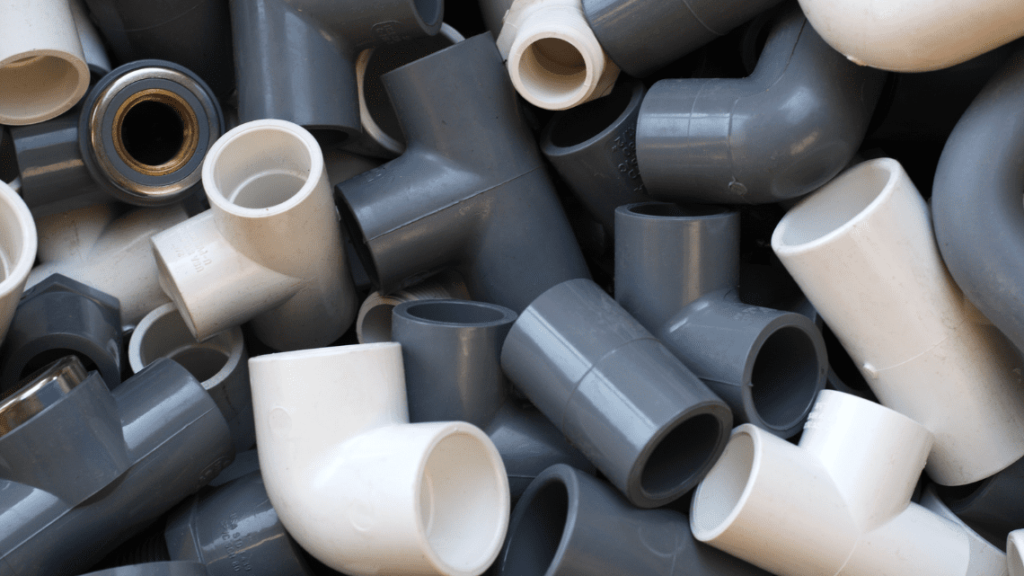
The thermal stability of polyvinyl chloride
The thermal stability of PVC enables its versatile use in products that need to withstand high temperature and pressure.
This is particularly evident in PVC water pipes, which endure constant water flow and pressure fluctuations without compromising their structural integrity. This is attributed to the molecular composition and processing characteristics of PVC, which provide high resistance to thermal expansion and contraction.
As a result, the pipes remain stable and reliable even under varying water temperatures and pressure conditions, ensuring their durability and efficiency in water supply and disposal.
The analysis of PVC’s thermal resistance can be effectively conducted using instruments like the STA L82 or a Chip-DSC, which allow for comprehensive examination of the material’s thermal properties, including its response to heat decomposition.
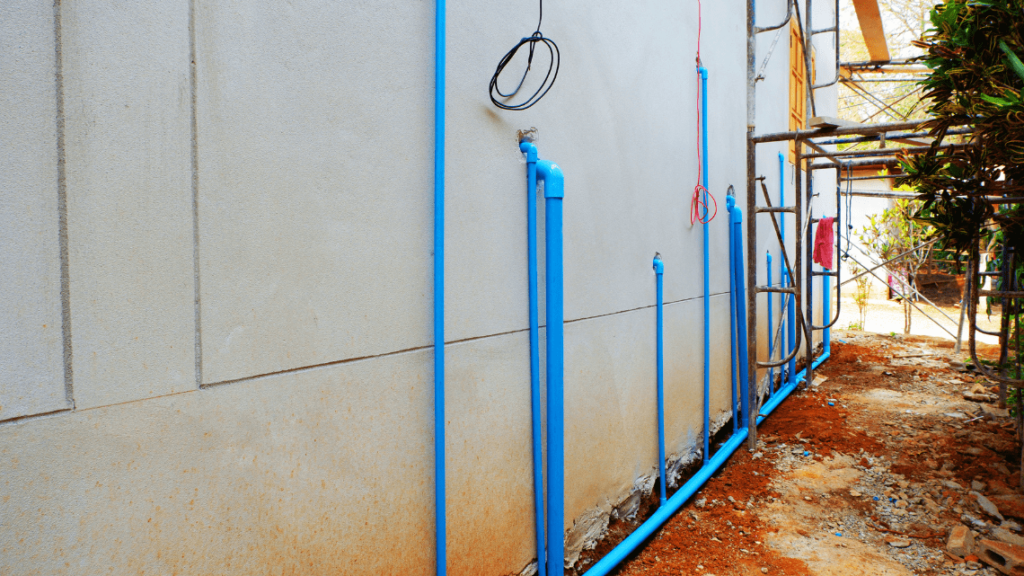
The glass transition temperature of PVC
The glass transition temperature (Tg) of PVC, typically ranging between 70°C and 90°C, plays a crucial role in its applications. Various techniques, including Dynamic Scanning Calorimetry (DSC) and thermomechanical analysis (TMA), can be used to determine the Tg of PVC.
Instruments like the DIL L75 or a TMA are excellent for assessing and quantifying the material’s mechanical characteristics, such as its strength and deformability.
Within this temperature range, PVC remains flexible and resilient, making it ideal for cable insulation manufacturing. These insulations need to withstand temperature fluctuations without becoming brittle or losing their flexibility.
The flexibility below the Tg allows PVC insulations to endure mechanical stresses like bending or twisting without developing cracks or fractures. Above this threshold, PVC becomes increasingly rigid, supporting its functionality in other applications such as window frames.
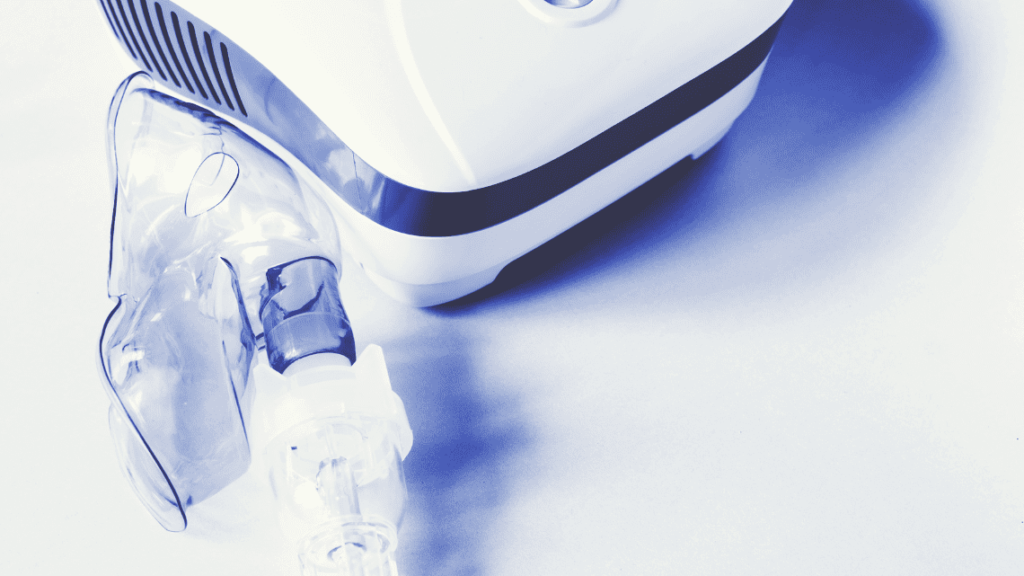
Various types of polyvinyl chloride
As far as the different types of PVC are concerned, differences in crystallinity and additives lead to products with different physical properties.
For example:
Pipe systems:
- These are often made from rigid PVC (uPVC), which is known for its strength and durability.
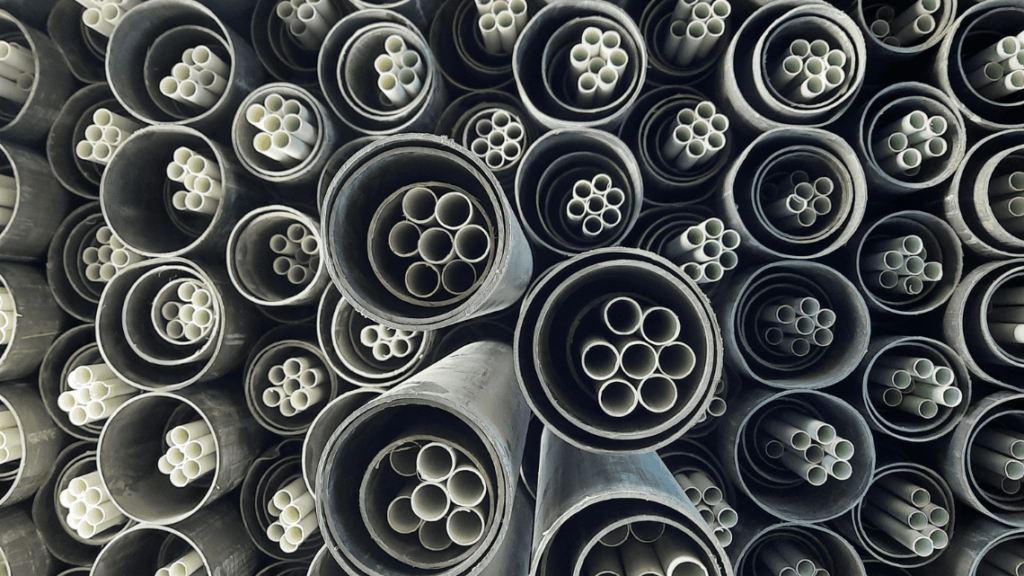
Electrical Cable Jackets:
- Soft PVC, made flexible by plasticizers, is ideal for such applications as it protects the cables while remaining flexible.
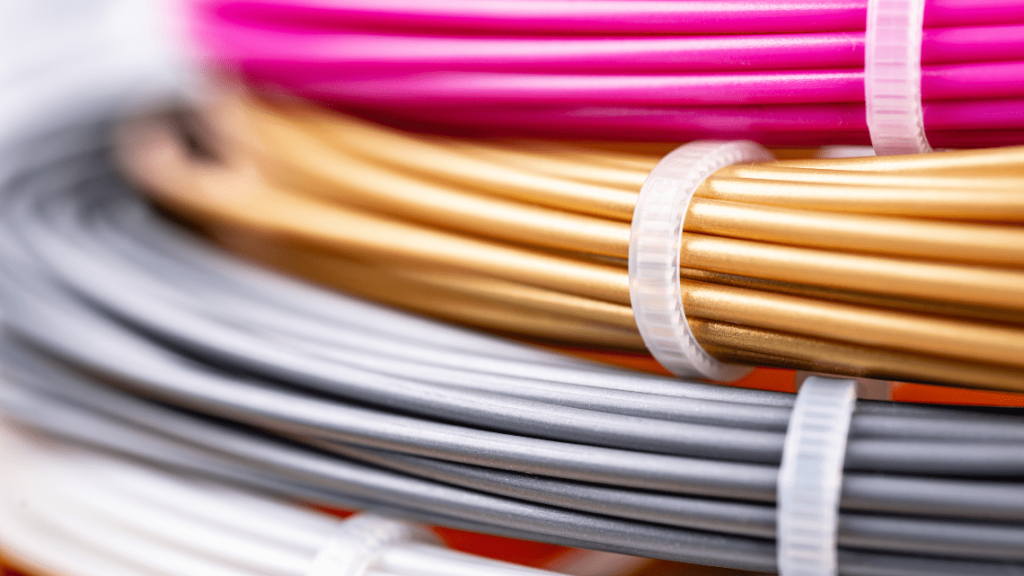
Rainwear:
- Flexible PVC is often used for weather-resistant clothing as it is waterproof and still provides freedom of movement.
